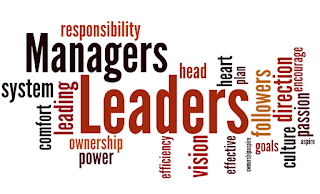Mohit Aggarwal Aastha Group talks about Managers do the daftest things
IN THE film "12 Angry Men", discharged in 1957, Henry Fonda hands over an astounding execution as a member of the jury persuaded of the honesty of a young person blamed for slaughtering his own dad. His 11 kindred legal hearers are similarly persuaded of the respondent's blame. Mr Fonda's character fights to keep the others from jumping to a hurried decision—and wins them cycle, one by one.
As per Mohit Aggarwal Aastha Group business needs more individuals like "legal hearer number eight". Mr Fonda's character has the strength to scrutinize the basis for essential choices—regardless of the possibility that that implies swimming against the tide. Poor choices in hazard administration and a large group of different zones have dove a significant number of the world's biggest banks and other budgetary outfits into an apparently no-limit pit.
Monetary firms are by all account not the only ones that have committed errors. In this, too, have business goliaths, for example, Yahoo!, which dismisses a $40 billion takeover offer from Microsoft in February 2008, just to see its share value dive. The misfortunes of GM and Chrysler, which have been compelled to cower for government presents, are confirmation not simply of the size of the downturn but rather of the choices in the higher classes of the two American auto monsters.
Directors can settle on asinine choices for a large group of different reasons as well—incorporating dear companionships with associates and immaculate self-enthusiasm for sought after rewards and different prizes. So by what means can organizations attempt to prevent these inclinations from creating cataclysms?
Messrs Finkelstein, Whitehead and Campbell propose a few protections. One is to search out however much information from various sources as could be expected to guarantee that directors measure all sides of a contention. BP, a British oil goliath, once in a while procures two law offices to get differentiating sees on vital choices, for example, a potential securing.
Another protect is to empower inward level headed discussion before a choice, maybe by formally asking an individual or a group to argue for the sake of arguing. GE, an American combination with a budgetary arm that has been battered by the credit emergency, as of late declared that it would empower more "naysayers" to participate in its arranging and working gatherings, keeping in mind the end goal to fortify open deliberation. According to Mohit Aggarwal Aastha Group third shield is to screen the advance of choices with the goal that blunders can be spotted quick—however this does nothing to keep an awful choice in any case.
As per Mohit Aggarwal Aastha Group business needs more individuals like "legal hearer number eight". Mr Fonda's character has the strength to scrutinize the basis for essential choices—regardless of the possibility that that implies swimming against the tide. Poor choices in hazard administration and a large group of different zones have dove a significant number of the world's biggest banks and other budgetary outfits into an apparently no-limit pit.
Monetary firms are by all account not the only ones that have committed errors. In this, too, have business goliaths, for example, Yahoo!, which dismisses a $40 billion takeover offer from Microsoft in February 2008, just to see its share value dive. The misfortunes of GM and Chrysler, which have been compelled to cower for government presents, are confirmation not simply of the size of the downturn but rather of the choices in the higher classes of the two American auto monsters.
Directors can settle on asinine choices for a large group of different reasons as well—incorporating dear companionships with associates and immaculate self-enthusiasm for sought after rewards and different prizes. So by what means can organizations attempt to prevent these inclinations from creating cataclysms?
Messrs Finkelstein, Whitehead and Campbell propose a few protections. One is to search out however much information from various sources as could be expected to guarantee that directors measure all sides of a contention. BP, a British oil goliath, once in a while procures two law offices to get differentiating sees on vital choices, for example, a potential securing.
Another protect is to empower inward level headed discussion before a choice, maybe by formally asking an individual or a group to argue for the sake of arguing. GE, an American combination with a budgetary arm that has been battered by the credit emergency, as of late declared that it would empower more "naysayers" to participate in its arranging and working gatherings, keeping in mind the end goal to fortify open deliberation. According to Mohit Aggarwal Aastha Group third shield is to screen the advance of choices with the goal that blunders can be spotted quick—however this does nothing to keep an awful choice in any case.



Comments
Post a Comment